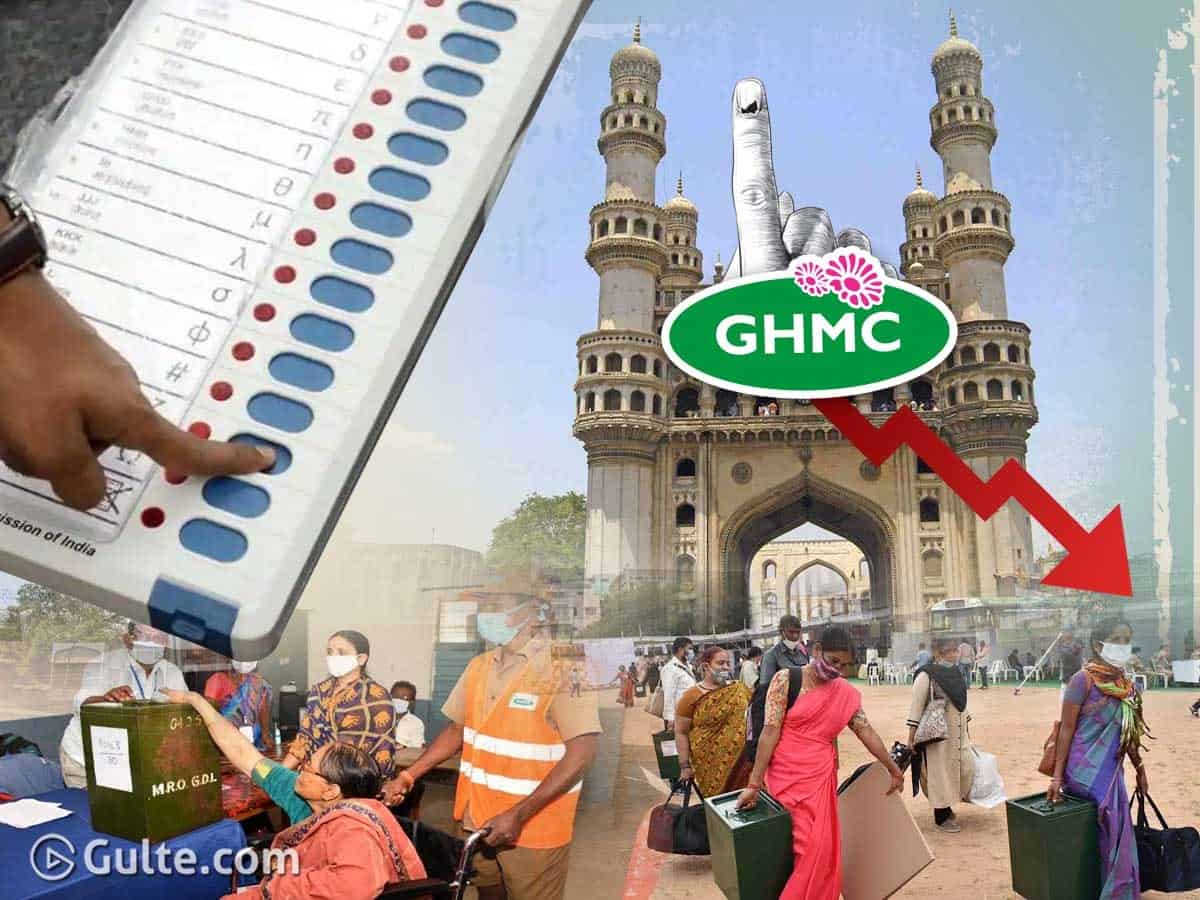Hyderabad has once again experienced low voter turnout despite cutthroat competition and the blistering campaign trail. There seems to be an eminent disconnect between the political mainstream and the average voter. A host of reasons might have contributed to this often-repeated phenomenon of low voter turnout.
The BJP-TRS belligerent electoral fight has raised the expectations of high turnout. But, the acrimonious campaign failed to enthuse the voter.
Pandemic might have contributed to the low turnout to a great extent. The old and those who suffer from comorbidity might have been extra cautious to avoid any possible infection. The surprising aspect is that many of those who avoided exercising their franchise due to fear of pandemic have been availing unlock situation. Voting seems to be not their priority.
The average voter failed to recognise the direct connect between his own living conditions and the need for exercising franchise. The rich and the middle class who take the fruits of democracy granted often ignore the link between their personal wellbeing and good governance that elections can only herald. As noted cricketer, Steve Waugh’s says: “You do not know what you have got until it is lost.”
However, voters alone cannot be blamed. The corrupt political culture that fails to offer radically different alternatives does not enthuse average urban voters to vote especially braving the pandemic.
The pandemic has also adversely affected voter turnout as many Hyderabadis left the city. The reasons include job losses and work from home opportunities. Hyderabad is a place of residence and occupations for many with roots in the countryside. The pandemic induced economic situation has led to reverse migration from Hyderabad to villages and smaller towns. It is difficult to quantify its empirical impact on voting percentages. But it is undoubtedly an important factor.
The strong caste, class, and cultural identities in the villages make it difficult for the voter to stay away from voting. But the virtual social networks replace physical connectivity in the urban landscape removing the impact of peer pressure in motivating people to vote. The faulty voter list often dissuades even the genuine voter from exercising the franchise. Notwithstanding all these factors, the hypocrisy of socially and economically well-placed sections in refusing to vote needs to be questioned.
By Prof K Nageshwar
For Prof K Nageshwar’s views please subscribe to Telugu Videos : English Videos
Tags Democracy GHMC Elections GHMC Polls Hyderabad Hyderabad Voters Less Voting Percentage Poor Turnout What Wrong With Hyderabad Voters?
 Gulte Movie News And Politics
Gulte Movie News And Politics

















